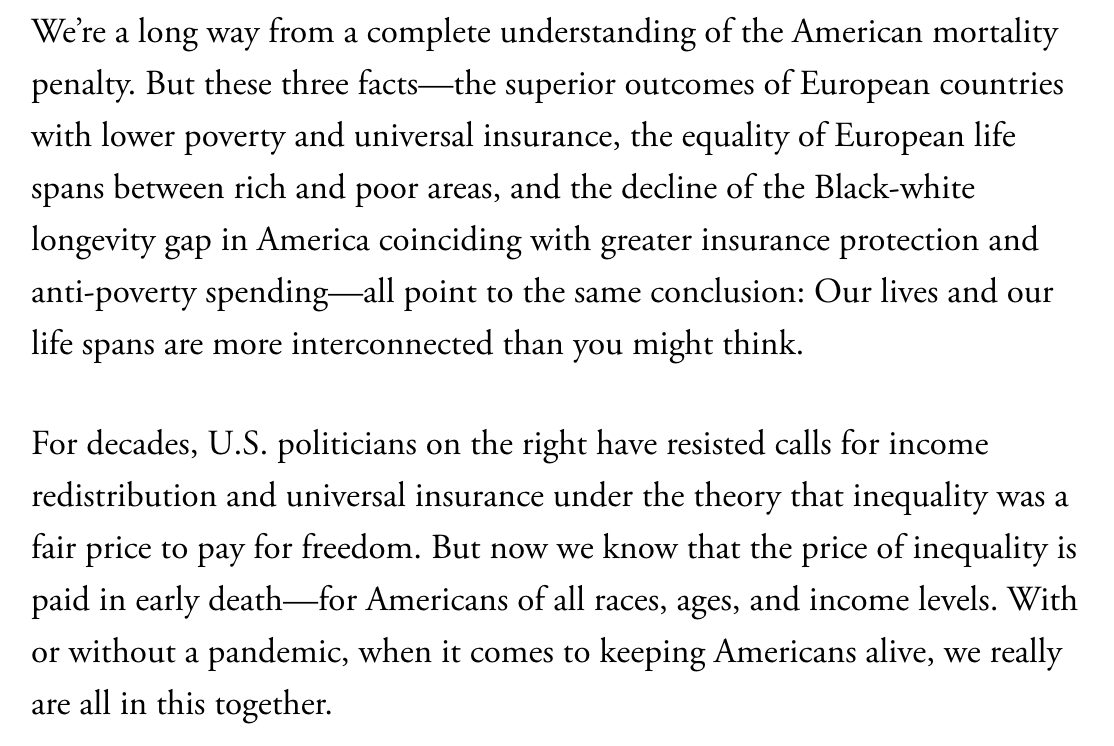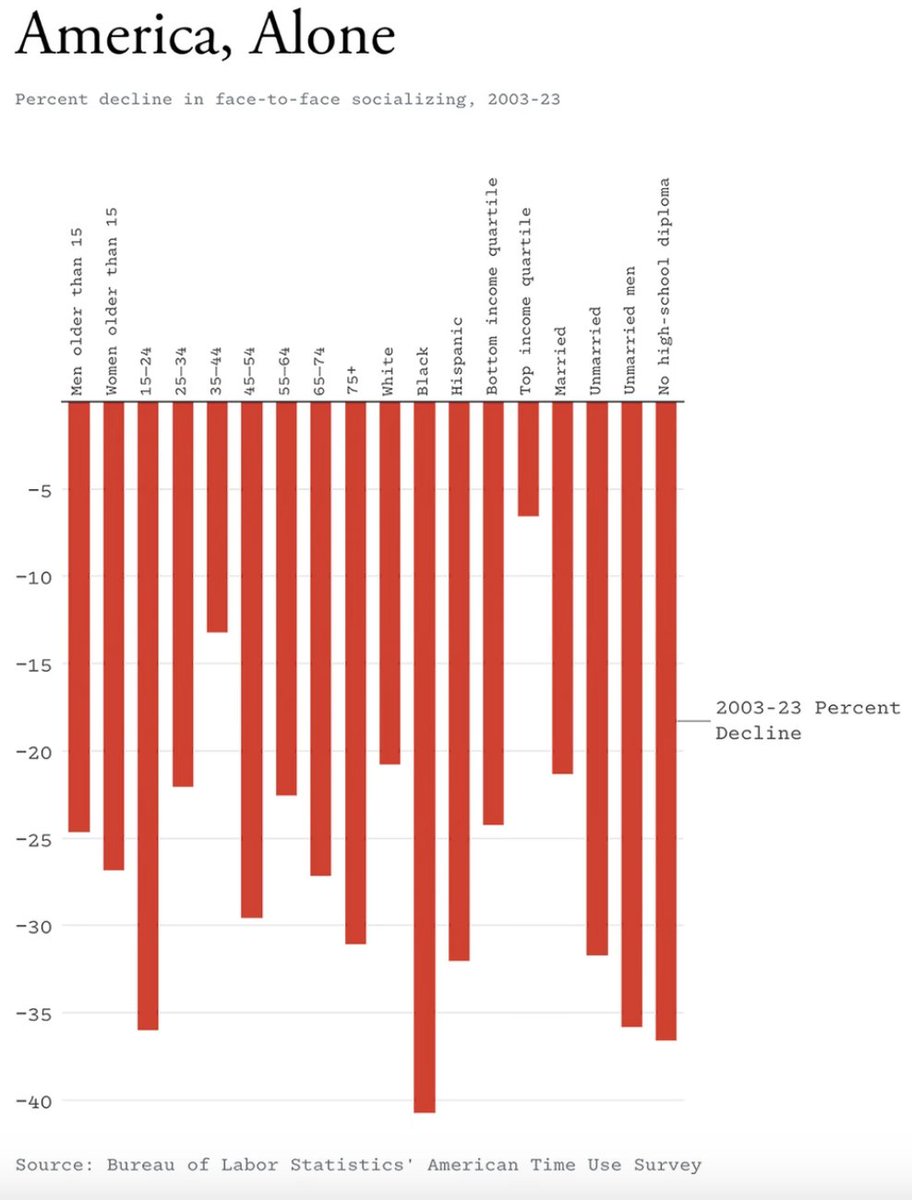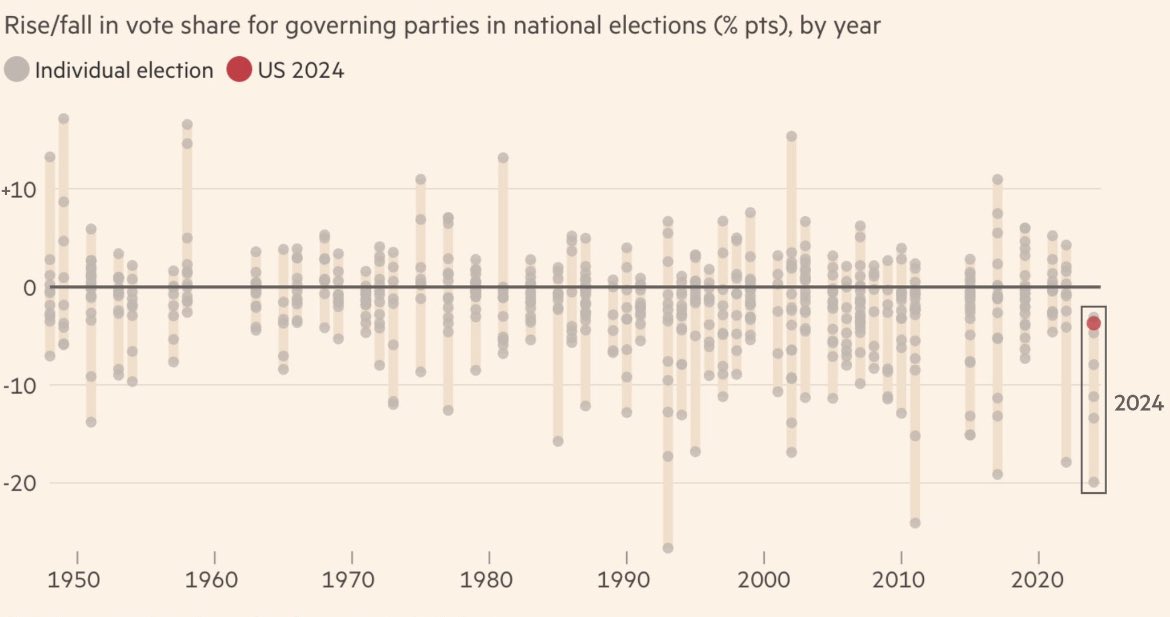I wrote about why Americans die so much, from everything—and why that's a policy choice.
theatlantic.com/ideas/archive/…
An amazing new study shows the U.S. is doing much worse than other developed countries at performing the most basic function of civilization: keeping people alive.
theatlantic.com/ideas/archive/…
An amazing new study shows the U.S. is doing much worse than other developed countries at performing the most basic function of civilization: keeping people alive.
In the last 30 years, two important things have happened with US lifespans.
1. US longevity fell way behind much of Europe
2. This happened even though the Black-white mortality gap shrunk by half, thanks to strong improvements in Black mortality in high-poverty areas.
1. US longevity fell way behind much of Europe
2. This happened even though the Black-white mortality gap shrunk by half, thanks to strong improvements in Black mortality in high-poverty areas.
1. In the last 30 years, Black infant mortality in the U.S. has improved by a lot
2. But the slope of the red line is still steep, which means Black infants in high-poverty areas have much worse outcomes
3. In Europe, no slope = very little effect of poverty on infant death
2. But the slope of the red line is still steep, which means Black infants in high-poverty areas have much worse outcomes
3. In Europe, no slope = very little effect of poverty on infant death

It's the same story for all ages
1. Black Americans have higher mortality than whites
2. The Black-white mortality gap is declining
3. In the US, where you live still strongly determines when you'll die
4. In Europe, ppl live more similar lifespans in rich and poor areas

1. Black Americans have higher mortality than whites
2. The Black-white mortality gap is declining
3. In the US, where you live still strongly determines when you'll die
4. In Europe, ppl live more similar lifespans in rich and poor areas


Why is the Black-white mortality gap shrinking?
- Fewer homicides, which disproportionately affect Black Americans
- More deaths of despair, which dis. affects whites
- Declining infant mortality
- Cancer treatments seem to be reaching more Black Americans since the '90s
- Fewer homicides, which disproportionately affect Black Americans
- More deaths of despair, which dis. affects whites
- Declining infant mortality
- Cancer treatments seem to be reaching more Black Americans since the '90s

It's tempting to reach for 1 Big Explanation, but many things suppress US lifespan growth
- We kill one another with guns more, bc there are more guns
- We die in cars more, bc we drive a lot
- We have higher infant mortality, too, but I don't think that's bc of guns or cars
- We kill one another with guns more, bc there are more guns
- We die in cars more, bc we drive a lot
- We have higher infant mortality, too, but I don't think that's bc of guns or cars

If one thing connects the decline in Black-white mortality differences *and* the superior performance of Europe, it's this:
Life and death are more interconnected than many ppl think. And policies to reduce differences in mortality outcomes seem to help EVERYBODY live longer.
Life and death are more interconnected than many ppl think. And policies to reduce differences in mortality outcomes seem to help EVERYBODY live longer.

Important coda: The paper above only looked at white and Black mortality, by county.
The fact that US immigrants seem to be exceptions to the overall US mortality penalty is a very interesting thing that I wish I had a handy explanation for!
The fact that US immigrants seem to be exceptions to the overall US mortality penalty is a very interesting thing that I wish I had a handy explanation for!
https://twitter.com/ATabarrok/status/1437455189208801281?s=20
• • •
Missing some Tweet in this thread? You can try to
force a refresh























